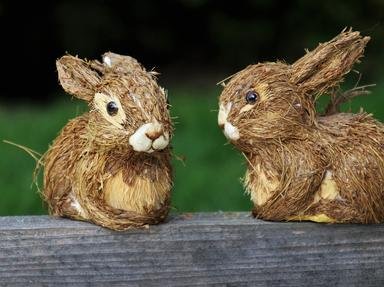Quiz Answer Key and Fun Facts
1. To pester or aggressively question somebody (6 letters)
2. To talk incessantly and annoyingly (6 letters)
3. To trick or outwit somebody by cunning - or to discolour paper (3 letters)
4. An internal spy within an enemy intelligence agency (4 letters)
5. To work hard (6 letters)
6. To eat (something) voraciously (4 letters)
7. To search diligently or to uncover (6 letters)
8. To run very fast or wildly (4 letters)
9. To betray somebody (3 letters)
10. To pursue or to chase after (3 letters)
Source: Author
Southendboy
This quiz was reviewed by FunTrivia editor
trident before going online.
Any errors found in FunTrivia content are routinely corrected through our feedback system.
